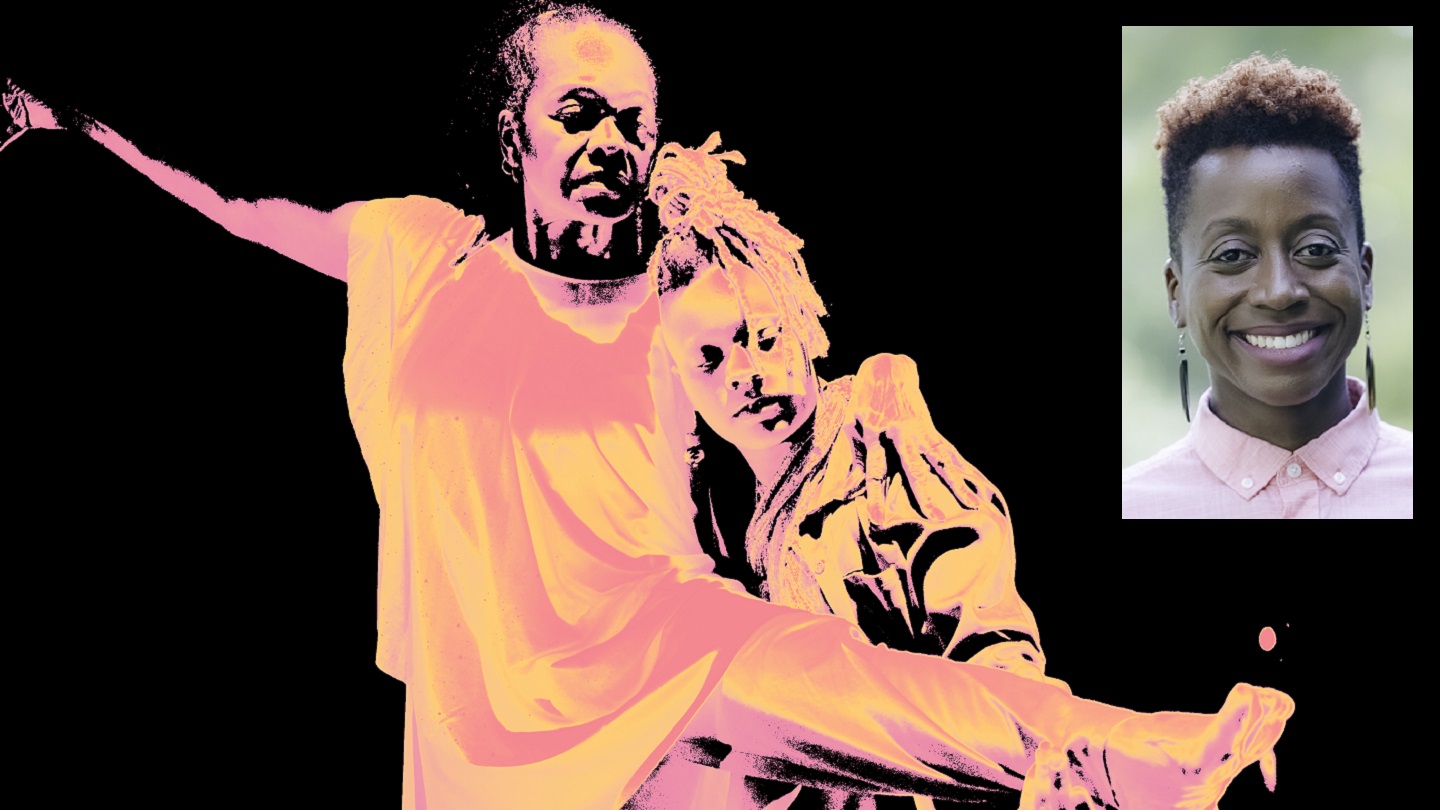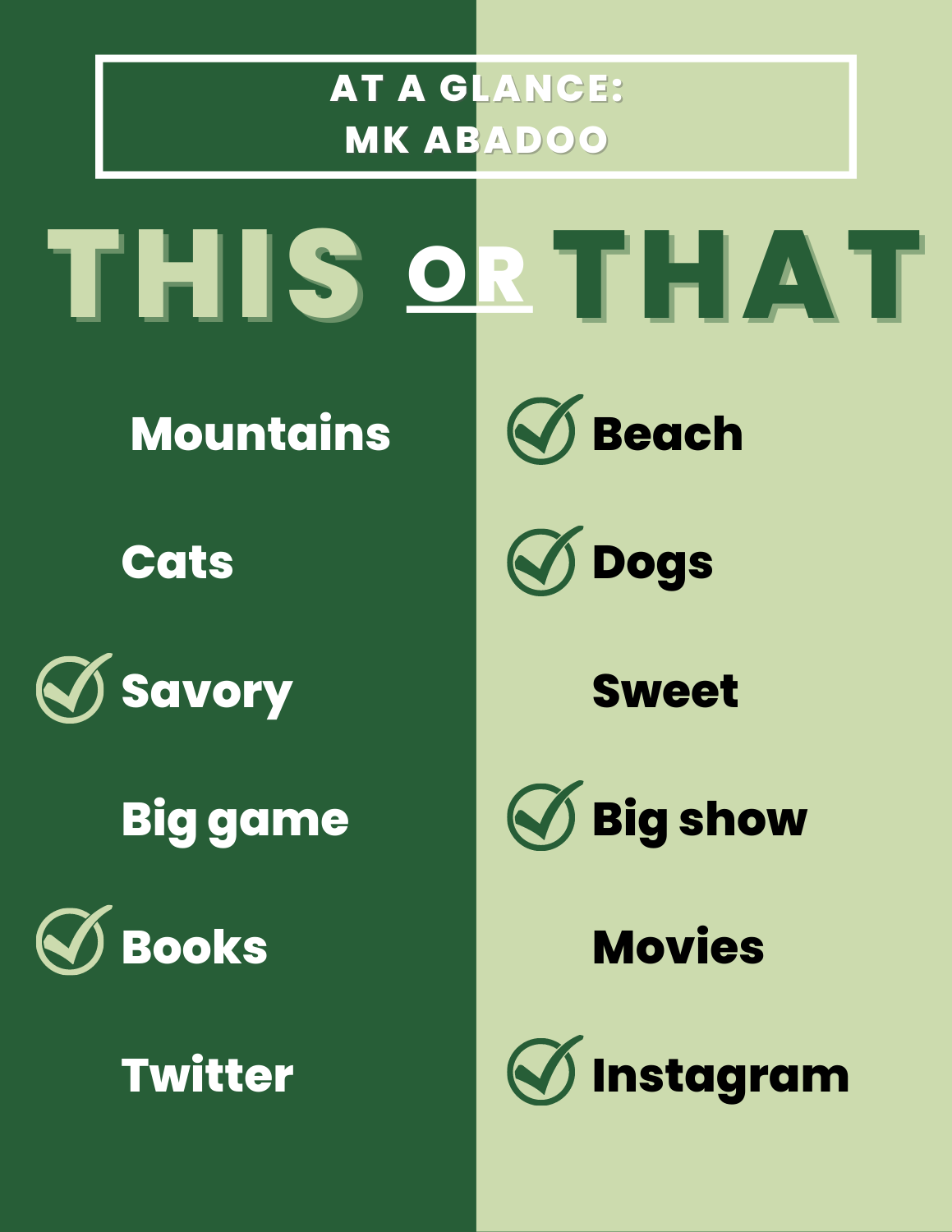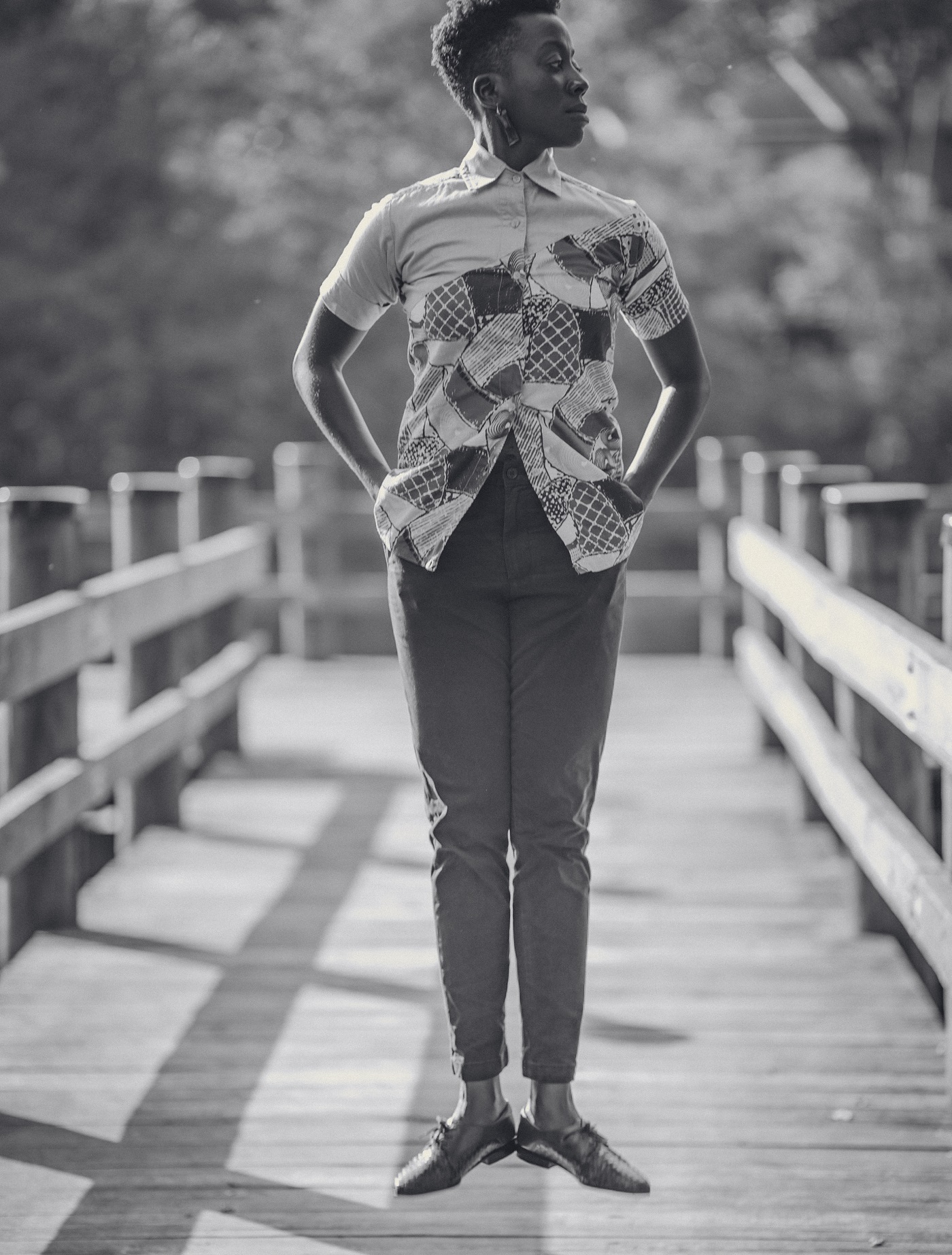Diversity Drives Excellence: Building community through dance

With their “Hoptown” immersive performance, iCubed professor MK Abadoo uses sistering circles to create intergenerational connections

Beautiful art sometimes originates in dark places. For MK Abadoo, VCU dance professor and iCubed scholar in the Racial Equity, Arts and Culture core, the passion project that has consumed much of their time and energy over the past several years was started during a rough time.
“The seed was planted around 2017 into 2018,” Abadoo explains. “It was a major transition in my life and my mother was visiting me quite often. We would sit together after my daughter would go to sleep and, inevitably, it would lead to her telling me stories about her life, stories I had never heard before.”
These stories prompted Abadoo to look more closely into a town important to her growing up, Hopkinsville, Kentucky, the site of many family reunions and where her grandmother lived. In a fortuitous coincidence, she discovered that the author bell hooks, whose work they were rediscovering, grew up in Hopkinsville. “In her writing, she talks about growing up in Kentucky and developing a deep love of the land, of Appalachia, but she didn’t talk about Hopkinsville specifically,” Abadoo says.
The convergence of these factors inspired Abadoo to create “Hoptown,” an immersive, evening-long work that enlists audience members as “witnesses” to the experience as the action of the dance happens around and in-between them. They are developing the work through rehearsals in Richmond, three residencies in Hopkinsville and one just completed at the Kennedy Center in Washington, DC; she hopes to bring the work to VCU later this year.
Even as Abadoo continues to develop the work along with a company of core performers, the groundbreaking project has already been honored and awarded, starting with a National Performance Network Creation Fund award in 2021, receiving a National Dance Project Production Grant last October and most recently garnering support from the Kennedy Center through its Office Hours residency program.
Written in the stars
Abadoo should be used to receiving honors at this point: among other awards, they were listed by Dance Magazine as one of “25 to Watch” in 2018 and received a 2016 Fulbright Fellowship that supported a project with the National Dance Company of Ghana.
They say landing their job at VCU involved a circuitous series of connections.
“Before shifting to being a choreographer, I was a touring dancer spending a lot of time in New York and, the artists that I was particularly struck by, when I would ask them where they trained, it would consistently be VCU,” Abadoo remembers. “I wondered, ‘what are they doing down there at VCU?’”
She eventually became good friends with Mame Diarra Speis, a co-artistic director of Urban Bush Women and a VCU graduate. “I learned so much from her and danced in one of her pieces,” Abadoo recalls. “I got to be in relationship with the training at VCU through the artistry that came out of her practice.” When Abadoo went back to graduate school after touring for many years, she was looking for an internship experience and found one working with Gaynell Sherrod, chair of VCU’s dance department at the time.
While at VCU, Abadoo found out she had received the Fulbright honor and, while in Ghana completing the fellowship in 2017, heard about a position opening up back at VCU. “It was a long journey here,” she says. “But in some ways it seems like it was written in the stars that I be here.”
Making connections

“Hoptown” is only the latest example of how Abadoo incorporates community engagement into her work. “All of my work seeks to support community-centered organizing around black women and girls, queer folk and gender expansive folks,” she says. “So the residencies for ‘Hoptown’ are really important to build and make connections.”
To facilitate making connections and building mutual support for “Hoptown;” the residencies in Kentucky include companion workshops called sistering circles. “The concept of ‘sistering’ was made clear to me from my mother’s stories that consistently included ways of being in relationship to specific people that activated a wisdom and ethics of persistent care,” Abadoo says. “It doesn’t necessarily involve a biological sister. It could be a dear friend. For bell hooks, she talked about authors she found solace within. It’s a framework that’s like a tradition of limitless bonds and ceaseless support.”
According to one of “Hoptown’s” core company members, Julinda Lewis, Ed.D., who is also an adjunct professor at VCU, Abadoo extends that tradition of care to her company. “We have check-ins where we come in and just say where we are mentally and physically,” Lewis explains. “Someone might say, ‘I’m in need of some touch,’ and they’ll get a hug. It’s such a pleasant way to work.”
All of my work seeks to support community-centered organizing around black women and girls, queer folk and gender expansive folk.
MK Abadoo, Assistant Professor, Dance + Choreography, and iCubed Core Member
Lewis says the inclusiveness of the company helps create exceptional work. “Everybody feels like they’ve contributed to the work so everyone has some ownership. It’s a totally different way of working than a traditional dance company,” she says. “The outcome is generally something that everybody can somehow relate to on a very personal level.”
The company is also uniquely intergenerational: the oldest member is 88 years old and Abadoo’s daughter, who is 8, also performs. “I’ll be 68 next month,” says Lewis. “I feel extremely blessed to be able to still be performing at my age. It’s just an amazing experience.”
Abadoo says “Hoptown” represents the realization of goals she set years ago after arriving at VCU. “When I came here as an iCubed scholar, my charge was to engage anti-racist practice in relationship with students at the university and in the community,” she says.”It feels very special to be able to do that and I feel really grateful to be here now in this moment.”
Editor’s Note: Diversity Drives Excellence Profiles introduce you to some of the diverse faculty and staff members whose work makes VCU such an uncommon and amazing university. The Office of Institutional Equity, Effectiveness and Success (IES) publishes the profiles on its blog and promotes them across its social media channels. Please send questions or comments about this series to ies@vcu.edu.
Categories Diversity, iCubed